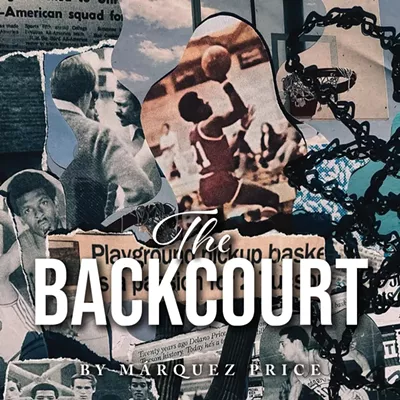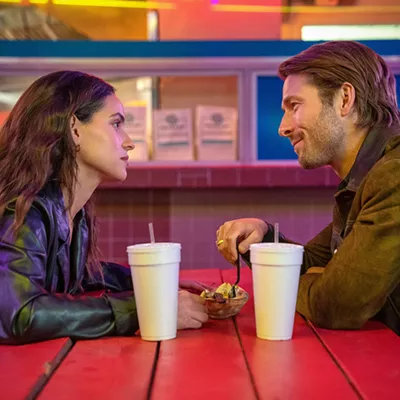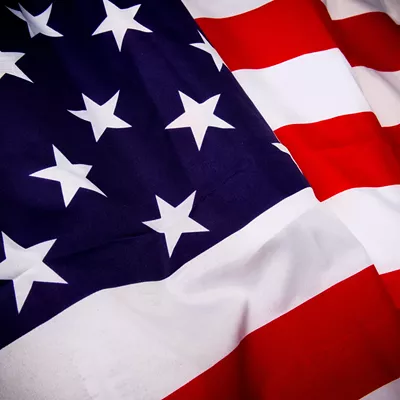When the new Horizons spacecraft zoomed past Pluto last week, it brought back feelings that I hadn't experienced in a long while. I'm one of those Baby Boomers who was blessed/cursed to have lived through the 1960s, a mostly awful decade, but one that had a killer soundtrack.
My friends and I were all jock wannabes. Baseball was still cool back then and some wanted to pitch for the Dodgers, others wanted to run the backcourt with Jerry West and still others wanted to be the running back for the Rams. I wanted to be all of those things, plus I wanted to be able to play tennis like Rod Laver. (One generally didn't admit to such things back then in the inner city.) But mostly, I wanted to be an astronaut. I can still recite the names of all seven Mercury astronauts. (Google makes that so much less impressive these days.) I knew all of the missions and read everything I could on the Space Race. Alas, I learned pretty early on that I would never be an astronaut. For one thing, they only took people who didn't suffer from motion sickness. I get carsick if I'm riding in the front passenger's seat. I understand that even experienced jet pilots get something called space sickness; if I went up there, I'd be the Human Barf Bag.
Even though I knew I couldn't be an astronaut, I, like millions of other kids growing up back then, threw myself into math and science. This represented the future. Even when everything else was falling apart, our quest for space made us the best that we could be and gave us hope.
I remember so clearly the year 1968. It started with the Tet Offensive, an overblown flare-up by the Viet Cong that basically signaled that the Vietnam War wasn't going to end soon or end well. It also prompted President Lyndon Johnson to drop out of the presidential race.
Martin Luther King got assassinated and riots broke out all over the country. Then, two months later, Bobby Kennedy got killed. Later that summer, massive riots broke out in Chicago, the site of the Democratic National Convention. A loose-knit coalition of organizations (Students for a Democratic Society, the National Mobilization Committee to End the War in Vietnam, and the Youth International Party) had gathered to protest outside the convention headquarters. With the protesters chanting "The whole world is watching!," an overwhelming force of Chicago police and National Guard troops overwhelmed the crowd. (Months later, the official Walker Report would conclude that the police had "rioted.")
As the year moved into the fall, there was more racial discord after Tommie Smith and John Carlos did the famous Black Power salute at the Mexico City Olympics. Things then went from bad to ridiculously worse when America elected Richard Outhouse Nixon as President. He was able to emerge victorious because five Southern states (Alabama, Georgia, Mississippi, Arkansas and Louisiana) gave their electoral votes to third-party candidate and avowed segregationist George Wallace of Alabama.
Wallace might also have won the Carolinas and Tennessee were it not for the fact that he had chosen as his running mate retired Air Force General Curtis "Let's Nuke 'Em!" LeMay. Some time after having led the successful air campaign against Japan in World War II, LeMay didn't just go around the bend, he went around the event horizon and ended up somewhere in the middle of the Schwarzchild singularity. (A little astrophysics humor to lighten the mood.)
But it was what happened at the end of the year that sticks with me. After all the crappy stuff that happened in the crappiest year in American history (certainly since the Civil War), it somehow ended on a surprisingly hopeful note. On Christmas Eve, the Apollo 8 lunar capsule went into orbit around the Moon. It was commanded by Tucson High School graduate Frank Borman. The crew sent back the picture of Earthrise (one of the most iconic photos of all time) and read from Genesis.
Borman ended the broadcast by saying, "And, from the crew of Apollo 8, we close with good night, good luck, a Merry Christmas, and God bless all of you—all of you on the good Earth."
That didn't make all of 1968 OK, but it made it less crappy. It showed some of mankind's possibilities.
(The next year was better, but stuff still came in bunches. In a one-month period in the Summer of '69, man landed on the Moon, the Manson murders took place in L.A., Hurricane Camille pummeled the Gulf Coast, and then there was Woodstock.)
I know it's just a coincidence, but I can't get past the fact that the shrinking of the American middle class due to the introduction of artificially manufactured income disparity began right about the same time as the last Moon landing. We lost sight of our boldness and instead became petty.
Somewhere, we lost our way. People don't want to be great any more; they want to have great big bank accounts. Even the people who made New Horizons happen had to scrounge around for pennies to get the thing launched.
I and my fellow Baby Boomer science dreamers have now lived long enough to have seen Pluto up close. I want more. Mankind should want more.







